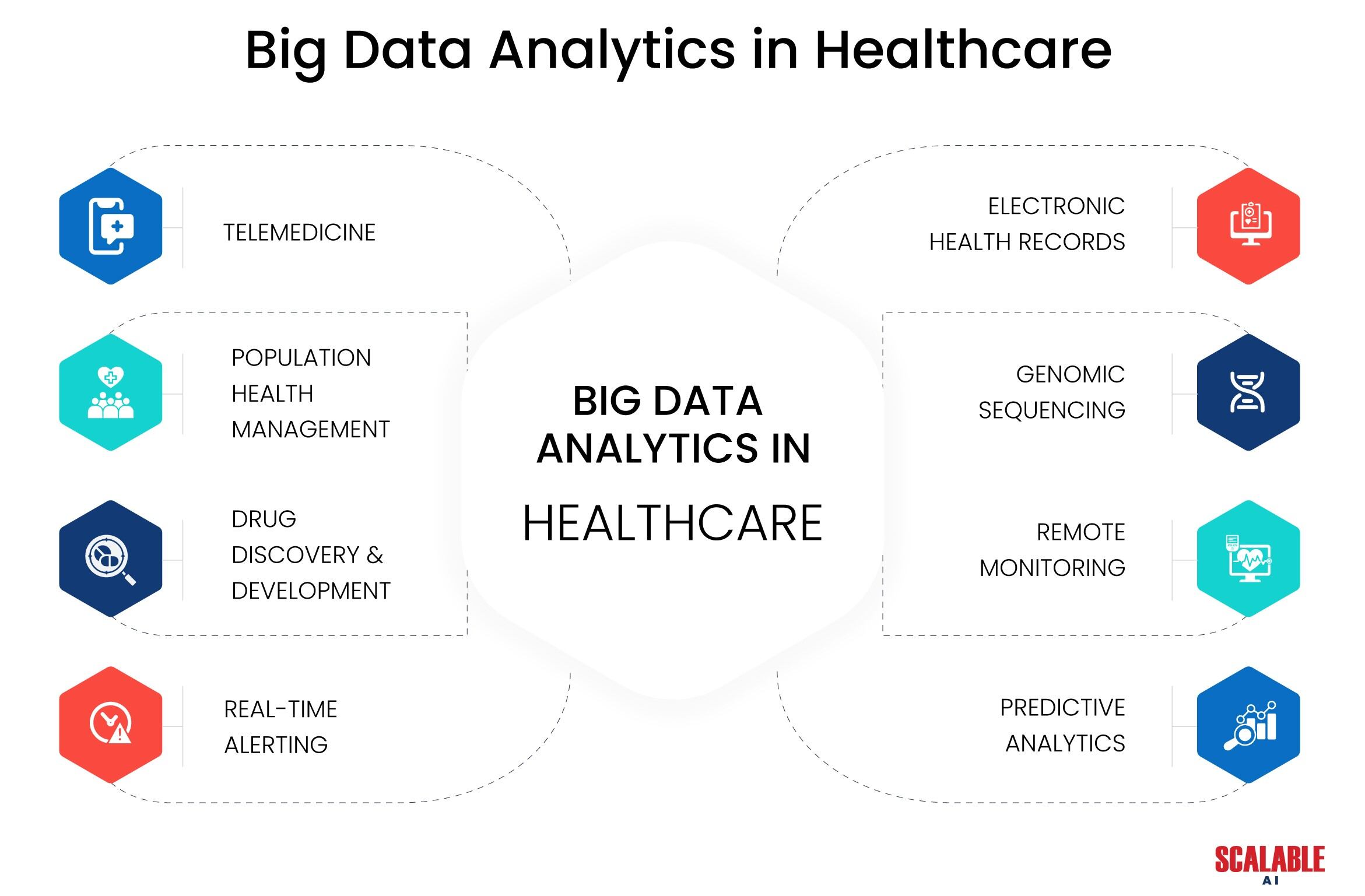The integration of data analytics in personalized healthcare is driving a significant shift in the medical field, enabling more precise and individualized patient care. By leveraging vast amounts of data from electronic health records, genomic sequencing, wearable devices, and more, healthcare providers can deliver tailored treatments that are more effective and efficient. This blog explores how data analytics is revolutionizing personalized healthcare, the key trends shaping its future, and the challenges that must be overcome to fully realize its potential.
The Current Landscape
In recent years, the healthcare industry has witnessed an exponential growth in the collection and availability of patient data. This surge is driven by the widespread adoption of electronic health records (EHRs), the proliferation of wearable health devices, and advancements in genomic sequencing. These data sources represent a goldmine of information that, when properly analyzed, can revolutionize how healthcare is delivered.
However, the sheer volume of data generated daily presents a challenge: without sophisticated analytical tools, much of this data remains underutilized. This is where data analytics steps in, transforming raw data into actionable insights. By integrating patient data with advanced algorithms, machine learning, and artificial intelligence, healthcare providers can make more informed decisions that enhance preventive care, improve disease diagnosis, streamline treatment planning, and optimize patient monitoring.

Key Trends Shaping the Future of Personalized Healthcare
As personalized healthcare continues to evolve, several key trends are emerging, each playing a crucial role in shaping the future of this field:
- Big Data Integration
The ability to integrate diverse data sources—such as EHRs, wearable devices, and genetic data—enables a more comprehensive understanding of a patient’s health. This holistic view allows for more accurate predictions and the development of highly personalized treatment plans. The integration of big data is critical for moving beyond a one-size-fits-all approach to healthcare, enabling treatments that are tailored to the individual needs of each patient.
- Precision Genomics
Advances in genomic sequencing and analysis are at the forefront of personalized medicine. By identifying genetic variations that influence disease development and treatment response, healthcare providers can offer more targeted interventions. Machine learning algorithms enhance this process by efficiently analyzing vast amounts of genetic data, leading to better, more personalized care.
- Real-time Monitoring
Wearable devices and sensors are revolutionizing how healthcare providers monitor patient health. These tools continuously collect patient-generated health data, providing real-time insights that enable early detection of potential health issues. With the ability to intervene promptly, healthcare providers can prevent complications and improve overall patient outcomes.
- Artificial Intelligence and Machine Learning
AI and machine learning are transforming data analytics by automating the categorization and analysis of large datasets. These technologies improve the accuracy of diagnoses and enhance treatment decisions by uncovering patterns that might be missed by traditional methods. As AI and ML continue to advance, their role in personalized healthcare will only grow more significant.
- Predictive Analytics
Predictive analytics is another powerful tool in personalized healthcare. By applying predictive models to patient data, healthcare providers can anticipate disease progression, identify high-risk patients, and implement preventive measures. This proactive approach not only improves patient outcomes but also reduces healthcare costs by avoiding unnecessary interventions.
The Advantages of Data Analytics in Personalized Healthcare
The integration of data analytics into personalized healthcare offers numerous benefits:
- Improved Treatment Response
By analyzing individual patient data, healthcare providers can identify treatment options that are most likely to be effective, minimizing the trial-and-error approach that is often associated with medical treatments. This leads to better patient outcomes and a more efficient healthcare process.
- Enhanced Disease Prevention
Data analytics enables the identification of individuals at higher risk for developing certain conditions, allowing for early intervention and proactive care. This improves preventive care and reduces the burden of disease on the healthcare system.
- Greater Patient Satisfaction
Personalized treatment plans that are tailored to the unique characteristics and preferences of individual patients foster trust and engagement. Patients are more likely to adhere to treatment regimens when they feel that their care is specifically designed for them, leading to improved satisfaction and better health outcomes.
- Optimized Resource Allocation
Data analytics helps healthcare institutions prioritize resources effectively by tailoring treatments to the specific needs of patients. This approach minimizes the wastage of resources, resulting in cost savings and a more efficient healthcare system.
Overcoming Challenges
While the future of data analytics in personalized healthcare is promising, there are several challenges that need to be addressed:
- Data Privacy and Security
The increasing collection and sharing of sensitive patient data raise concerns about privacy and security. Stricter regulations and robust cybersecurity measures are essential to protect patient information and maintain trust in the healthcare system.
- Data Quality and Integration
The accuracy, completeness, and integration of data from various sources pose significant challenges. Standardizing data formats and ensuring interoperability between different healthcare systems are crucial for effective analytics and reliable insights.
- Legal and Ethical Considerations
As technology advances, legal and ethical considerations surrounding data use, consent, and ownership need to be carefully managed to protect patient rights. Clear guidelines and ethical frameworks are necessary to navigate the complexities of personalized healthcare.
- Expertise and Collaboration
To fully capitalize on the potential of data analytics in personalized healthcare, interdisciplinary collaboration is essential. Healthcare providers, data scientists, and researchers must work together to ensure that data is effectively analyzed and applied to improve patient care.
Conclusion
The future of personalized healthcare lies in the effective use of data analytics. By harnessing the power of big data, precision genomics, AI, and machine learning, healthcare providers can deliver more accurate diagnoses, tailor treatments to individual needs, and monitor patients in real-time. However, to fully realize the potential of personalized healthcare, challenges related to data privacy, quality, and integration must be addressed. As technology continues to evolve, collaboration and continuous advancements in data analytics will be key to shaping the future of healthcare and improving patient outcomes on a global scale.
Read Whitepaper Data Powerhouse: Leveraging Big Data in Life Sciences
